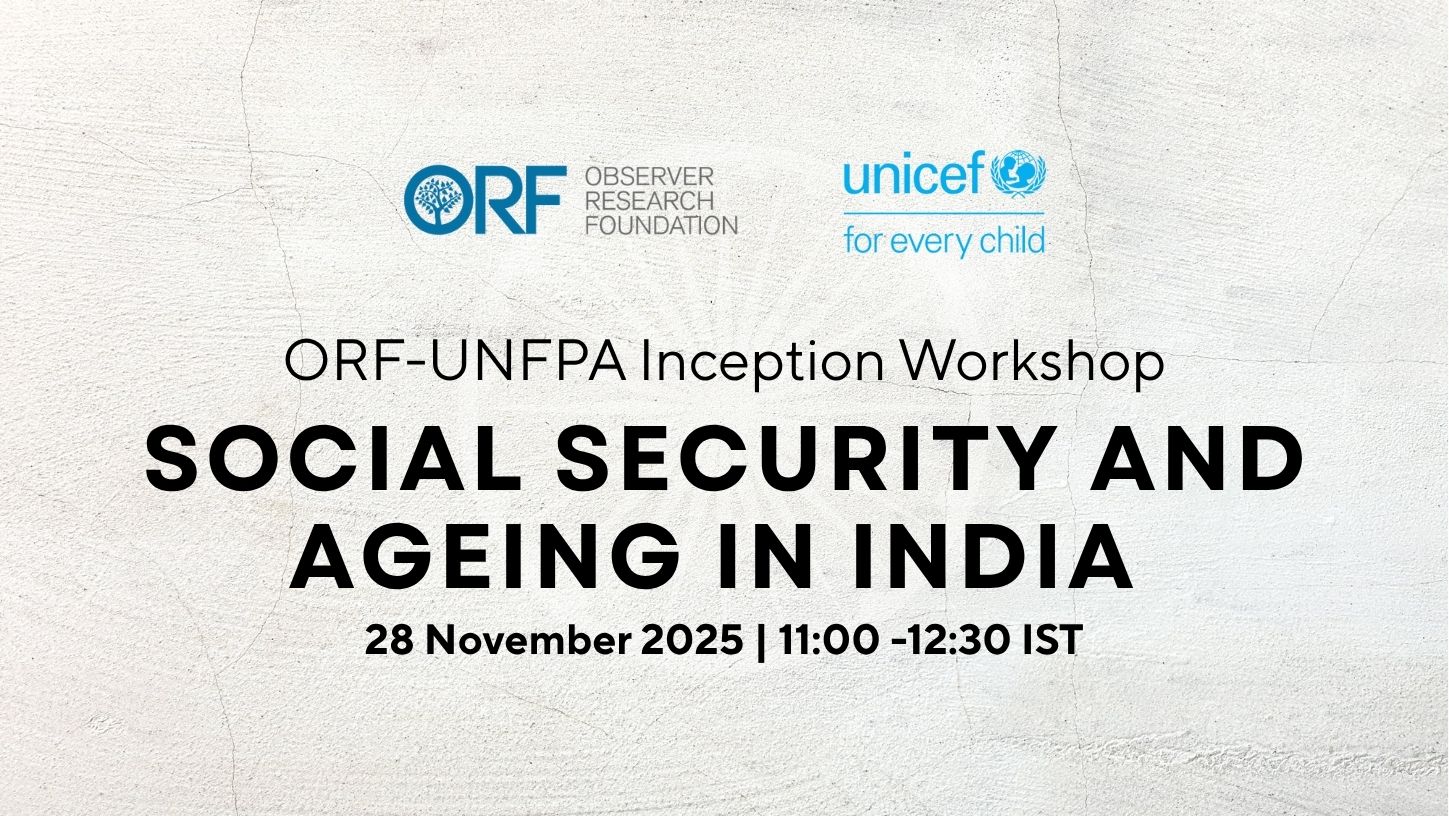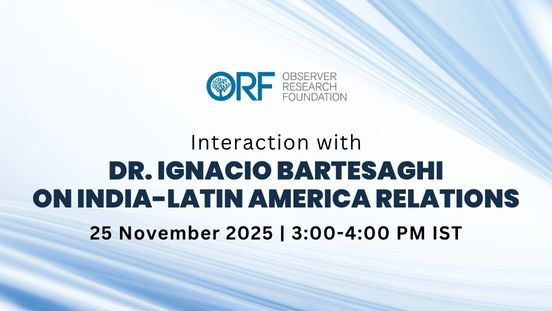-
CENTRES
Progammes & Centres
Location
India and Thailand have long-standing civilisational ties shaped by centuries of cultural and commercial interaction. Despite the establishment of diplomatic relations in 1947, bilateral cooperation between them gained real momentum only after the Cold War, driven by shifting regional dynamics and deeper integration into multilateral ...
The first eight months of Donald Trump’s presidency have seen notable changes in the United States’ (US) foreign policy towards Eurasia. Trump has overhauled regional priorities and shaken up the country’s relationships with allies, partners, and adversaries alike. While the transatlantic alliance is undergoing fundamental ...
Since the early 2010s, Russia has greatly expanded its cooperation with Pakistan, venturing into new areas and levels of cooperation and engaging in more frequent consultations. The bilateral ties have been growing despite many inherent challenges, including historical animosity during some periods of the Cold ...
This paper explores the status and the need for the United States (US) to have a port-led strategy in place. Further, it argues that a strong port-led strategy straddling economic concerns with security imperatives on the back of its vast coastline and unmatched global network ...
India’s demographic advantage presents a strategic window of opportunity to build a globally competitive and future-ready workforce. This demands that traditional education systems evolve to equip young learners with transferable and job-relevant competencies, commonly referred to as ‘21st-century skills’. Anchored in the context of India’s ...
The announcement by His Holiness the Dalai Lama of the continuation of the institution of the Dalai Lama, and the sharp reactions from China that followed, have reignited global attention on the Tibetan people’s decades-long struggle for independence. Owing to British self-interest during the Second ...
The potential misuse of chemical precursors, toxic industrial chemicals, and pharmaceutical-based agents (PBAs) by non-state actors poses a massive threat to national and international chemical security frameworks. There is an urgent need to strengthen the oversight of dual-use chemicals to arrest the frequent use of ...
Russia and North Korea signed the Treaty on Comprehensive Partnership in June 2024, signalling the re-establishment of their strategic ties. Following the treaty, a number of tactical developments have occurred, including the deployment of North Korean troops in Russia and Moscow’s support for North Korea’s ...
As India and Taiwan complete 30 years of informal relations this year, there is scope to deepen cooperation in the domains of trade, technology, digitalisation, and security. This paper offers a framework for India’s engagement with Taiwan, identifies the pillars of their current relationship and ...
This paper highlights the likely impact that the Trump energy policy reset may have on Washington’s approach to energy transitions domestically and globally. It seeks to identify any recalibration that this changed approach may have triggered in the long-term agenda of US partners. The paper ...

Soumya Bhowmick is a Fellow and Lead, World Economies and Sustainability at the Centre for New Economic Diplomacy (CNED) at Observer Research Foundation (ORF). He is pursuing his PhD and holds a double master’s degree in economics from Jadavpur University, ...
Read More +
Sreeparna Banerjee is an Associate Fellow in the Strategic Studies Programme. Her work focuses on the geopolitical and strategic affairs concerning two Southeast Asian countries, namely Myanmar and Thailand. Her primary focus is on the Rohingya issue within the Bay of ...
Read More +
